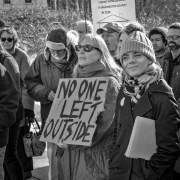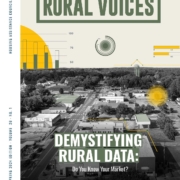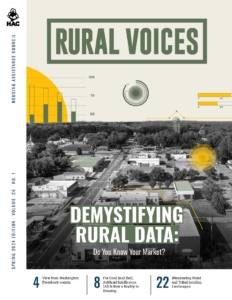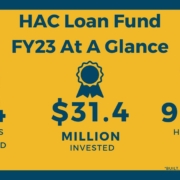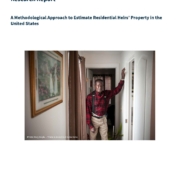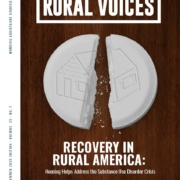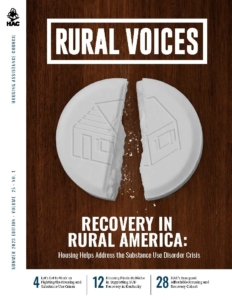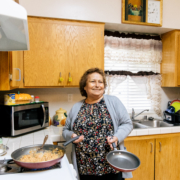Contacts: AHRV Team, ahrv@ruralhome.org
(202) 842-8600
Washington, DC, June 10, 2024 – Veterans and their families in fourteen rural communities will have better lives, thanks to The Home Depot Foundation and the Housing Assistance Council. The Foundation is awarding grants totaling $472,000 to sixteen local nonprofit housing agencies around the country to preserve housing for veterans in rural America.
The grants are part of The Home Depot Foundation’s mission to provide affordable and accessible housing solutions to U.S. veterans and invest $750 million in veteran causes by 2030. Many veterans and their families face major housing challenges, often exacerbated by issues related to unemployment, age, and service-related disabilities. The Home Depot Foundation and the Housing Assistance Council (HAC) are dedicated to giving back to those who have answered the highest call of service to our nation.
As part of its Affordable Housing for Rural Veterans (AHRV) Initiative, HAC works with The Home Depot Foundation to administer grants that bolster and support the work of rural nonprofit housing agencies to deliver critical housing support to veterans. “The Home Depot Foundation’s enduring partnership and support stands as an important pillar in HAC’s ongoing efforts to bolster and grow the capacity of local rural organizations dedicated to providing and preserving decent, safe, and affordable housing options for veterans across rural America.” said David Lipsetz, HAC’s CEO. As rural America is home to a disproportionately high number of service women and men, HAC remains deeply committed to supporting our nation’s service women and men by uplifting local nonprofits and their work to house veterans and ensure the habitability of their homes and rural communities.
The grantee organizations – described below – provide a range of programs. With the grants, veterans who own homes in California, Georgia, Illinois, Maryland, Michigan, Minnesota, Mississippi, New York, North Carolina, North Dakota, Oregon, South Carolina, South Dakota, and Tennessee will obtain critical repair assistance. Altogether, 101 veterans and their families will benefit from these grants.
About The Home Depot Foundation

The Home Depot Foundation, the nonprofit arm of The Home Depot (NYSE: HD), works to improve the homes and lives of U.S. veterans, support communities impacted by natural disasters and train skilled tradespeople to fill the labor gap. Since 2011, the Foundation has invested more than $500 million in veteran causes and improved more than 60,000 veteran homes and facilities. The Foundation has pledged to invest $750 million in veteran causes by 2030 and $50 million in training the next generation of skilled tradespeople through the Path to Pro program by 2028. To learn more about The Home Depot Foundation visit HomeDepotFoundation.org and follow us on Twitter @HomeDepotFound and on Facebook and Instagram @HomeDepotFoundation.
About the Housing Assistance Council
The Housing Assistance Council (HAC) is a national nonprofit that supports affordable housing efforts throughout rural America. Since 1971, HAC has provided below-market financing for affordable housing and community development, technical assistance and training, research and information, and policy formulation to enable solutions for rural communities.
To learn more about the Housing Assistance Council, visit www.ruralhome.org and follow HAC on LinkedIn, Facebook, Instagram, YouTube, and Twitter @RuralHome.

